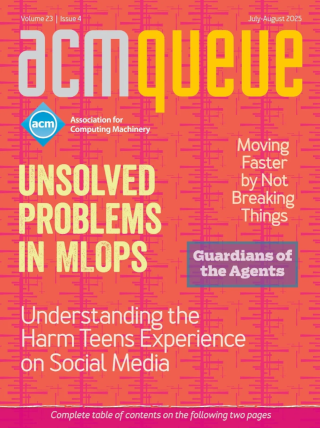
One Peut-Être, Two Peut-Être, Three Peut-Être, More:
Puns and allusions
One is always loath to explain a joke. In face-to-face badinage, the joker can judge the comprehension of the jokes from their immediate reactions. Failing to win the approving smiles, chuckles, or belly laughs, the raconteur has a choice of remedies including the Quick Exit Strategy ("What a dumb crowd. I’m out of here!"). The modest teller will accept the blame ("Oh, I forgot to mention that the mother-in-law was a blond Republican Fortran programmer!") and order drinks all around. It’s the bore unwilling to accept defeat who embarks on a detailed analysis heralded by an aggressive, "You don’t get it, do you?"
Whither Sockets?:
High bandwidth, low latency, and multihoming challenge the sockets API.
One of the most pervasive and longest-lasting interfaces in software is the sockets API. Developed by the Computer Systems Research Group at the University of California at Berkeley, the sockets API was first released as part of the 4.1c BSD operating system in 1982. While there are longer-lived APIs, it is quite impressive for an API to have remained in use and largely unchanged for 27 years. The only major update to the sockets API has been the extension of ancillary routines to accommodate the larger addresses used by IPv6.



